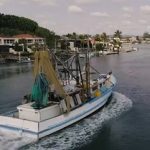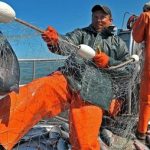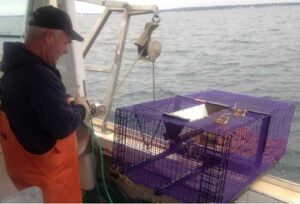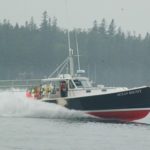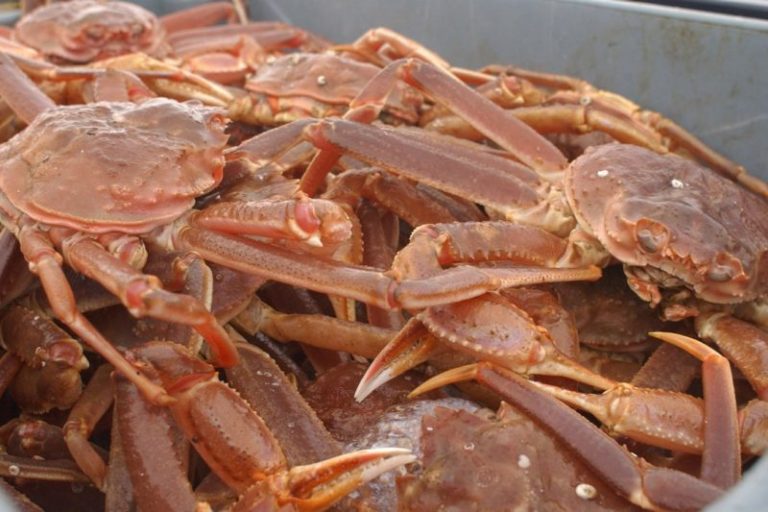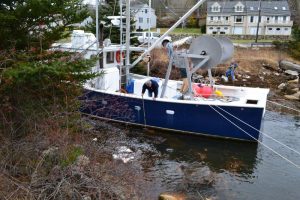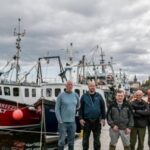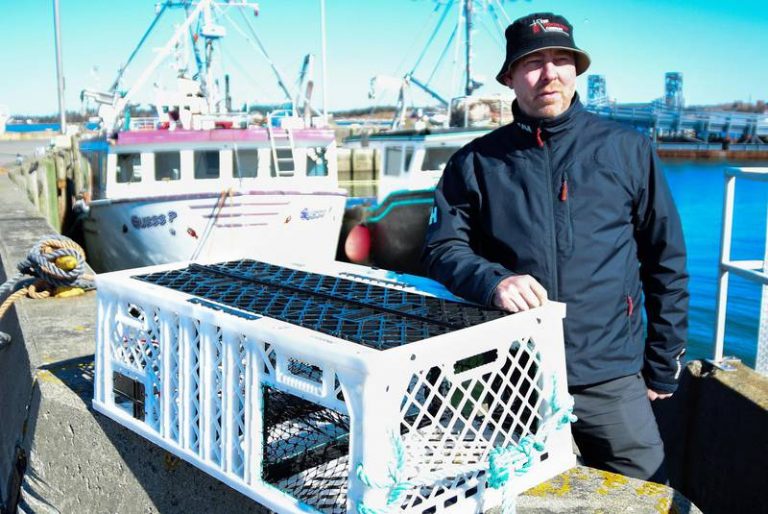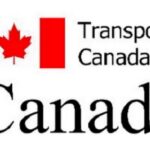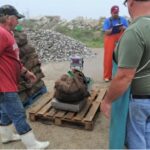Tag Archives: john bullard
“Today,NOAA has responded to a declared disaster by creating a crisis.” NOAA sticks to cuts in fish limits
![]() “Want to buy a boat?” said Orlando, who fishes from the 70-foot vessel Padre Pio. “I put it up for sale. I have no choice.” “Rather than take the true advice of the New England Fisheries Management Council, the New England states and Congress and go forward with a second Interim Rule, NOAA instead to chose deliver a ‘death’ sentence to an industry, a way of life, and local economies and communities up and down the New England coast,” Ferrante wrote in an email. “I cannot say that I am surprised, but today, we dig in and fight harder.” Damned RIGHT! continued
“Want to buy a boat?” said Orlando, who fishes from the 70-foot vessel Padre Pio. “I put it up for sale. I have no choice.” “Rather than take the true advice of the New England Fisheries Management Council, the New England states and Congress and go forward with a second Interim Rule, NOAA instead to chose deliver a ‘death’ sentence to an industry, a way of life, and local economies and communities up and down the New England coast,” Ferrante wrote in an email. “I cannot say that I am surprised, but today, we dig in and fight harder.” Damned RIGHT! continued
‘Take the ‘no’ out of NOAA,’ rally speakers urge
![]()
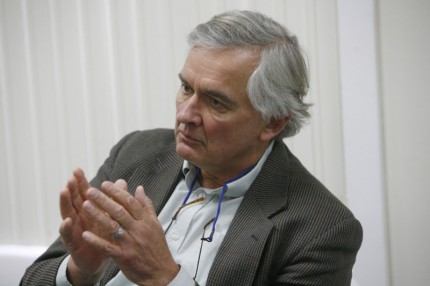 It was Attorney General Martha Coakley, a leading advocate for the fishing industry along with Gov. Deval Patrick who put it directly to NOAA’s Gloucester-based Northeast regional administrator while addressing the roughly 300 fishermen present as well.
It was Attorney General Martha Coakley, a leading advocate for the fishing industry along with Gov. Deval Patrick who put it directly to NOAA’s Gloucester-based Northeast regional administrator while addressing the roughly 300 fishermen present as well.
“I hope, Mr. Bullard,” she said, speaking beneath a big canvas tent, “that you can take the ‘no’ out of NOAA.” continued
Boston rally urges 11th-hour reprieve for fishermen (conflicting number of attendee’s)
Barring the extraordinary, draconian cuts in landings for the (New England) 2013 fishing season will take effect on Wednesday — May 1, the start of the new fishing year. It was Attorney General Martha Coakley, a leading advocate for the![]() fishing industry along with Gov. Deval Patrick who put it directly to NOAA’s Gloucester-based Northeast regional administrator while addressing the 300-400 fishermen present as well.Boston rally urges 11th-hour reprieve. John Bullard who stood in the audience that numbered about 250 people, told the Times moments later he has heard nothing from higher authorities, NOAA, however, has still not posted on the Federal Register the catch limits for groundfish for the 2013 fishing year. continued
fishing industry along with Gov. Deval Patrick who put it directly to NOAA’s Gloucester-based Northeast regional administrator while addressing the 300-400 fishermen present as well.Boston rally urges 11th-hour reprieve. John Bullard who stood in the audience that numbered about 250 people, told the Times moments later he has heard nothing from higher authorities, NOAA, however, has still not posted on the Federal Register the catch limits for groundfish for the 2013 fishing year. continued
As grim fishing year approaches, New England’s fishing fleet tries to deal with new catch limits – “What are people doing to help the industry?”
![]() BOSTON – Deep cuts in catch limits will hit New England’s fishing fleet in less than three weeks, and there’s little hint any real relief is coming. But regulators and fishermen are still seeking ways to lessen a blow fishermen warn will finish them off. As time grows short, Gloucester’s Al Cottone said he and his fellow fishermen seem to be facing the future in a sort of “state of shock.” “Everyone’s in denial. They still think, you know, someone’s going to come in on their white horse and save us,” he said. “No one knows what they’re going to do,” he said. “Nobody.” continued
BOSTON – Deep cuts in catch limits will hit New England’s fishing fleet in less than three weeks, and there’s little hint any real relief is coming. But regulators and fishermen are still seeking ways to lessen a blow fishermen warn will finish them off. As time grows short, Gloucester’s Al Cottone said he and his fellow fishermen seem to be facing the future in a sort of “state of shock.” “Everyone’s in denial. They still think, you know, someone’s going to come in on their white horse and save us,” he said. “No one knows what they’re going to do,” he said. “Nobody.” continued
Massachusetts Lawmakers press NOAA to ‘suspend’ May 1 quota cuts
![]() Citing widespread evidence of an abundance of important commercial in shore fish stocks and a scientific study that found flaws in the modeling methods used by the government to set catch limits, a contingent of state lawmakers led by Senate President Therese Murray are urging NOAA’s top fisheries official to allow the fleet reasonable access to stocks while new studies are conducted into the vitality of the Gulf of Maine ecosystem. continued
Citing widespread evidence of an abundance of important commercial in shore fish stocks and a scientific study that found flaws in the modeling methods used by the government to set catch limits, a contingent of state lawmakers led by Senate President Therese Murray are urging NOAA’s top fisheries official to allow the fleet reasonable access to stocks while new studies are conducted into the vitality of the Gulf of Maine ecosystem. continued
Editorial: Influx of cod must spark feds to delay limit cuts
![]() But the influx of cod must be seen as bad news by those esteemed NOAA “scientists” and officials who, with the help of their closely-related environmental nonprofit spin doctors, have poured countless PR dollars and effort into spreading the false word that, indeed, the cod stocks are so diminished — especially from the Gulf of Maine — that we need to cut those fishermen’s 2013 quota by a job- and industry-killing 77 percent. continue reading
But the influx of cod must be seen as bad news by those esteemed NOAA “scientists” and officials who, with the help of their closely-related environmental nonprofit spin doctors, have poured countless PR dollars and effort into spreading the false word that, indeed, the cod stocks are so diminished — especially from the Gulf of Maine — that we need to cut those fishermen’s 2013 quota by a job- and industry-killing 77 percent. continue reading
John Bullard – No guarantees that fish stocks will come back
The big question is: Why has this happened? Over the years, quotas have been gradually reduced, but still the fish aren’t coming back as expected. It isn’t simply a case of overfishing. There are environmental forces at play such as![]() predation from recovered populations of dogfish and seals, changes in ocean water temperature and increases in ocean acidity. So, while it may not be totally on the fishermen’s shoulders, it will be the fishermen who will have to pay the price. Read more
predation from recovered populations of dogfish and seals, changes in ocean water temperature and increases in ocean acidity. So, while it may not be totally on the fishermen’s shoulders, it will be the fishermen who will have to pay the price. Read more
Fishermen look to White House – John Bullard, NOAA’s Northeast regional administrator based at Gloucester’s Blackburn Industrial Park, scoffed at that idea.
By default and past experience, what slim hope remains to relieve the declared federal fisheries disaster before it consumes the surviving core of the groundfishing fleet in Gloucester and other New England ports has shifted from le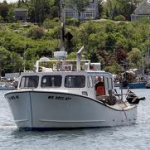 adership at the Commerce Department to the White House. ”I have not heard one word about fisheries from the president,”said Paul “Sasquatch” Cohan, the Gloucester fisherman who announced at the Warren meeting in Gloucester that he had nothing left to fight with. “I wouldn’t give up, but now I have to give up,” said Cohan, who operated a gillnet day boat. Read more
adership at the Commerce Department to the White House. ”I have not heard one word about fisheries from the president,”said Paul “Sasquatch” Cohan, the Gloucester fisherman who announced at the Warren meeting in Gloucester that he had nothing left to fight with. “I wouldn’t give up, but now I have to give up,” said Cohan, who operated a gillnet day boat. Read more
New England groundfishermen are taking the gloves off in the fight for survival
 175 Fishermen to Congress: Failed Government Policies Caused the Fishing Crisis, We’ve Done Nothing Wrong
175 Fishermen to Congress: Failed Government Policies Caused the Fishing Crisis, We’ve Done Nothing Wrong
– “The forced transition of our New England groundfish fishery to catch share management and hard TACs came with all sorts of rosy promises of resource abundance and economic stability,” they write. They also noted that many businesses were unable to survive the transition.
– Rather than producing the promised benefits, the transfer of the groundfishery to sector management has led to a prolonged period of economic instability. “There is no stability. There are only repeated, record reductions in catch limits. Prosperity is a discarded dream.”
– They blame the current state of the groundfishery on failed government management, writing: “Three weeks ago, NMFS Regional Administrator John Bullard told us at the Council meeting that this was our day of reckoning. This is not our day of reckoning – we’ve done nothing wrong to reckon. We didn’t cause this problem.” Instead, they maintain that the government does not have the science and data necessary to properly manage the fishery. “For too long we’ve been subjected to the volatility and futility of pretending to know the unknowable.”
“For nearly a decade now our fishery has fished at or below every catch limit set by the government on every stock. We lived within their quotas, but it is now our businesses, our families and our communities that will be paying the price.”
“Government cannot expect our industry to continue to be subjected to drastic cuts in allowable catches while placing additional, government-imposed expenses upon us.”
– They noted that, as the current catch share management system was being implemented, the Northeast Seafood Coalition publicly made clear that adequate federal funding and catch allocations would be needed for the system to properly function. They added: “Sure enough, here we are – less than 3 years after sector implementation – and the agency is telling us there is not enough money to monitor or enough fish to sustain our fishery. It’s difficult for many of us to believe that this was just a coincidence.” Read more and read the original letters with the signing fishermen
So theres this new petition floating around to Close the NMFS Northeast Regional Office!
Dear Chairwoman Mikulski and members of the Senate Committee on Appropriations: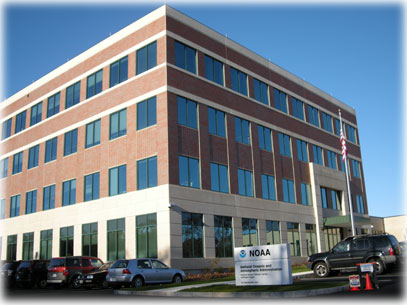
On January 26, 2013, the Associated Press reported that John Bullard, the Northeast Regional Administrator for the National Marine Fisheries Service (NMFS), stated, “failures by fishery managers are ultimately to blame for weak stocks that haven’t rebounded.” The AP went on to quote Mr. Bullard as saying, “we set the rules and clearly the rules have failed. There’s no other conclusion.”
•We commend Mr. Bullard for his honest, direct and accurate description of the current reality.
Mr. Bullard also commented on changes in the workplace, “A plant shuts down. A person who’s worked there for 30 years all of the sudden goes to the factory door and it’s closed. You learn a new trade and you adapt…People adapt and they survive.” As fishermen, we are owners and employees of small businesses, and we fully understand the difficulties and pain that Mr. Bullard describes.
•We believe that just as there are consequences for failures in business, so too should there be consequences for failures in government. Read more Link to the Petition
Editorial: Rollover quota spotlights absurd 2013 cod cuts
 Bullard’s own interpretation — backed by NOAA’s general counsel, Lois Schiffer, and her shady law enforcement gang — of the Magnuson-Steven Act, which suggests he had no option to extend the current year’s 22-pecent interim cut for a second year. That stand is widely refuted by the Gloucester-based Northeast Seafood Coalition, and by several members of Congress, which put the Magnuson-Stevens’ mandates in place and urged Bullard to reconsider. Read more
Bullard’s own interpretation — backed by NOAA’s general counsel, Lois Schiffer, and her shady law enforcement gang — of the Magnuson-Steven Act, which suggests he had no option to extend the current year’s 22-pecent interim cut for a second year. That stand is widely refuted by the Gloucester-based Northeast Seafood Coalition, and by several members of Congress, which put the Magnuson-Stevens’ mandates in place and urged Bullard to reconsider. Read more
Cod quota rollover is tightened, too – “we intend to allow just under 2 percent” John Bullard
 NOAA Regional Administrator John Bullard has agreed to extend a 10 percent carryover of uncaught fishing quota to the new fishing year — for all stocks except the Gulf of Maine cod, for which a carryover and potential bycatch would account for fishermen’s total catch under dire new catch limits due to take effect May 1. ”For all allocated groundfish stocks, except Gulf of Maine cod, where the stock remains in poor condition and there is a high risk of exceeding overfishing limits, we intend to continue to allow fishermen to carryover up to their full 10 percent unused quota in 2013,” he said. “For Gulf of Maine cod we intend to allow just under 2 percent carryover in 2013 to avoid a risk of exceeding the overfishing limit. Read more
NOAA Regional Administrator John Bullard has agreed to extend a 10 percent carryover of uncaught fishing quota to the new fishing year — for all stocks except the Gulf of Maine cod, for which a carryover and potential bycatch would account for fishermen’s total catch under dire new catch limits due to take effect May 1. ”For all allocated groundfish stocks, except Gulf of Maine cod, where the stock remains in poor condition and there is a high risk of exceeding overfishing limits, we intend to continue to allow fishermen to carryover up to their full 10 percent unused quota in 2013,” he said. “For Gulf of Maine cod we intend to allow just under 2 percent carryover in 2013 to avoid a risk of exceeding the overfishing limit. Read more
NOAA – Forward Thinking Measures To Benefit Scallop Fishermen and Resouce (sic)
“We have a long term vision for this resource and confidence in our research surveys that show we had unprecedented recruitment (abundance of young scallops) in the Mid-Atlantic in 2012,” said scallop industry representative, Peter Hughes of Atlantic Capes Fisheries. Annual surveys of the scallop resource conducted by NOAA Fisheries, the Virginia Institute for Maine Science and the School of Marine Science and Technology at the University of Massachusetts, Dartmouth, showed a high number of small scallops in 2012, particularly in the Mid-Atlantic. In recent history, the only year when the number of small scallops was greater was in 2001. Read more here
Voices of the exterminators and the exterminated .The New England Ground Fish Fleet
Just three years ago, the industry was told that the Gulf of Maine cod stock was rebounding and was expected to be fully rebuilt by 2014. The following year, they were told the models had been wrong and the stock was actually appro aching
aching
depletion. Fishermen continued to express concern with the science behind the stock assessments on Wednesday. “We’re not talking about, ‘Oh yeah, we’re going to have a tough year next year,’” “We’re talking about, you know, that’s it.’”David Goethel. Read more here
Our view: Bay State’s ‘Sacred Cod’ has become NOAA’s sacred cow
 Yes, NOAA can show “scientific” data suggesting that these dire cuts — up to 77 percent for the Gulf of Maine cod catch — may be necessary. Yet NOAA also had 2008 survey data that showed many of the cod stocks were already rebuilt. And NOAA’s latest data is off an assessment model that did not include any input from fishermen, meaning it’s no more credible than the admittedly bogus data used in the “Trawlgate” fiasco of 1999-2000, when NOAA conceded its statistics were hopelessly flawed, yet still used them to set stock limits. Read more here
Yes, NOAA can show “scientific” data suggesting that these dire cuts — up to 77 percent for the Gulf of Maine cod catch — may be necessary. Yet NOAA also had 2008 survey data that showed many of the cod stocks were already rebuilt. And NOAA’s latest data is off an assessment model that did not include any input from fishermen, meaning it’s no more credible than the admittedly bogus data used in the “Trawlgate” fiasco of 1999-2000, when NOAA conceded its statistics were hopelessly flawed, yet still used them to set stock limits. Read more here
Editorial – Save the fish, but also help the fishermen
This newspaper understands the angry response severe restrictions provoked among those whose families have earned their living from the sea for generations – “I’m leaving here in a coffin,” one fisherman from New Bedford, Mass., complained – but the council had no viable options…..We encourage NOAA to adopt the restrictions, as painful as they will be to New England fishermen, since they are the best way to give cod, now on the verge of extinction, a chance to replenish. Read more here at The Day
‘The fish aren’t there’? Industry isn’t buying it
 But the fishing community continues to disbelieve the National Marine Fisheries Service when it says, in the voice of John Bullard, “The fish aren’t there.”
But the fishing community continues to disbelieve the National Marine Fisheries Service when it says, in the voice of John Bullard, “The fish aren’t there.”
The fish have moved, they insist. Too-warm water during mild winters drove them to colder water. But a cold winter such as this one could bring them back almost overnight. February and March will tell, with the coldest water.
And if that happens, there’s trouble, because under the strict limits set by the New England Fishery Management Council this week, the low quotas for Gulf of Maine cod cannot be revisited for three years without a complete stock assessment.
Editorial: Lawmakers must force NOAA’s hand on fisheries
 Yes, NOAA can show “scientific” data suggesting that these dire cuts — up to 77 percent for the Gulf of Maine cod catch – may be necessary. Yet, NOAA also had 2008 survey data that showed many of the cod stocks were already rebuilt. And remember that the latest data is off an assessment model that did not include any input from rank-and-file fishermen, meaning it’s no more credible than the admittedly bogus data used in the “Trawlgate” fiasco of 1999-2000, when NOAA conceded its statistics were hopelessly flawed, yet still used them to set stock limits. Read more
Yes, NOAA can show “scientific” data suggesting that these dire cuts — up to 77 percent for the Gulf of Maine cod catch – may be necessary. Yet, NOAA also had 2008 survey data that showed many of the cod stocks were already rebuilt. And remember that the latest data is off an assessment model that did not include any input from rank-and-file fishermen, meaning it’s no more credible than the admittedly bogus data used in the “Trawlgate” fiasco of 1999-2000, when NOAA conceded its statistics were hopelessly flawed, yet still used them to set stock limits. Read more
Officials Back Deep Cuts in Atlantic Cod Harvest to Save Industry –
New York Times “I do not deny the costs that are going to be paid by fishermen, families, communities. They are real. They will hurt.” The problem, he said, is not government inflexibility, as fishermen have suggested, but the lack of fish. “It’s midnig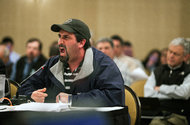 ht and getting darker when it comes to how many cod there are,” he said. “There isn’t enough cod for people to make a decent living.” But opponents said the limits would not help save the industry.
ht and getting darker when it comes to how many cod there are,” he said. “There isn’t enough cod for people to make a decent living.” But opponents said the limits would not help save the industry.
“Right now what we’ve got is a plan that guarantees the fishermen’s extinction and does nothing to ameliorate it,” David Goethel, a New Hampshire-based fisherman and biologist, said as he cast his vote against the plan.
Fishermen were furious with the result.“I’m leaving here in a coffin,” said Carlos Rafael, who owns a commercial fishing business in New Bedford, Mass. “With all these cuts, I won’t be able to keep half of my fleet working. I’ll have to cut down from 20 groundfish boats to maybe 5or 6.” Read more
New England panel approves 2013 cod limits with 77 percent cut
The New England Fishery Management Council voted Wednesday night to cut the Gulf of Maine cod fishery limits by 77 percent for the 2013 fishing cycle and to extend similar cuts for the 2014 and 2015, dealing a dire blow to the region’s fishing industry. Why this should be so became a sub-theme of the day, with the phrase “regime shift” used frequently to suggest a braid of environmental and ecological alterations —including millions of lobster traps that take an unknown quantity of cod as by-catch, large volumes of herring which eat cod eggs and seals which feed on cod, as well as the various forms of global warming that emanate from and absorb into the seas. Read more
“No one promises anyone in the fishing industry a job for life. It’s not a guarantee,” John Bullard
I’ve been thinking about Bullard’s statement about promises, “No one promises anyone in the fishing industry a job for life.“…….. Read more
NOAA N.E. chief eyes delay on limits
The New England Fishery Management Council approved the proposal from the Gloucester-based coalition at its special meeting Wednesday in Wakefield. The move came in conjunction with a decision to defer setting catch limits for the groundfishery until the regularly scheduled January meeting – a time frae tha would benefit from a benchmark Gulf of Maine stock assessment and the vetting of it by the council’s Science and Statistical Committee. The coalition wrote last Monday to the council laying out a legal theory derived from an interpretation of the Magnuson-Stevens Act by NOAA last year that became the basis of a one-year interim emergency action on inshore cod that kept the reduction in landings to 22 percent. Read more
NOAA region chief Bullard hedges on interim limits
The coalition theory was based on an interpretation of the Magnuson-Stevens Act for building a second year of relief — “reducing” rather than “ending” overfishing — while a plan to bring the stock to maximum sustainable yield is crafted.,“I’m not going to opine on whether you can squeeze another year out of (the Magnuson regulations),” Bullard said in a Thursday interview at the Times. “We’re willing to take a look at this at the meeting.” Read More
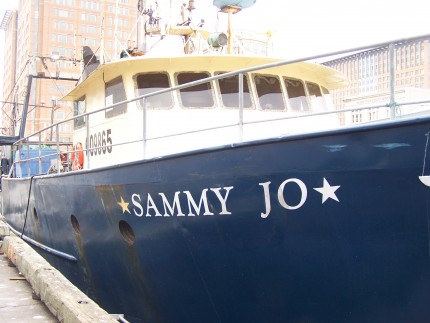
Feds consider opening New England Closed fishing areas. National Oceanic and Atmospheric Administration would still have to approve.
BOSTON (AP) — There are five zones off the New England coast drawn in varying angles and shapes, all rich with fish, or at least they were at one time. It’s why regulators looking to preserve valuable species closed these areas to certain kinds of fishing year-round, beginning in the 1990s. Two decades later, a fishing industry in crisis wants to get back in. http://www.seacoastonline.com/articles/20121215-NEWS-121219828
AUDIO: Highlights of NOAA’s Fishermen’s Northeast Groundfish Science Forum. Great Report from savingseafood.org
November  9, 2012 — Today, NOAA conducted a Fishermen’s Northeast Groundfish Science Forum in Portsmouth, New Hampshire, allowing fishermen and members of the public to interact with NOAA officials on groundfish science.
9, 2012 — Today, NOAA conducted a Fishermen’s Northeast Groundfish Science Forum in Portsmouth, New Hampshire, allowing fishermen and members of the public to interact with NOAA officials on groundfish science.
The following is a summary of the morning session. A summary of the afternoon session will be published next week. Throughout the summary below are links to audio highlights of the day’s meeting. http://www.savingseafood.org/science/audio-highlights-of-noaas-fishermens-northeast-groundfish-science.html?utm_source=feedburner&utm_medium=email&utm_campaign=Feed%3A+SavingSeafoodRss+%28Saving+Seafood%29







 The desperation shows on their faces and in the risks they’re taking to keep their mom-and-pop businesses on a lifeline. If pulse fishing hadn’t occurred, our sector would have been able to catch our quota,” said Burgess. “It’s a tremendous oversight to let the big boats work in shore,” said Ed Smith, captain of the 40 foot Claudia Marie. “And it wasn’t as if (NOAA) weren’t told” what was going on.
The desperation shows on their faces and in the risks they’re taking to keep their mom-and-pop businesses on a lifeline. If pulse fishing hadn’t occurred, our sector would have been able to catch our quota,” said Burgess. “It’s a tremendous oversight to let the big boats work in shore,” said Ed Smith, captain of the 40 foot Claudia Marie. “And it wasn’t as if (NOAA) weren’t told” what was going on. 





























